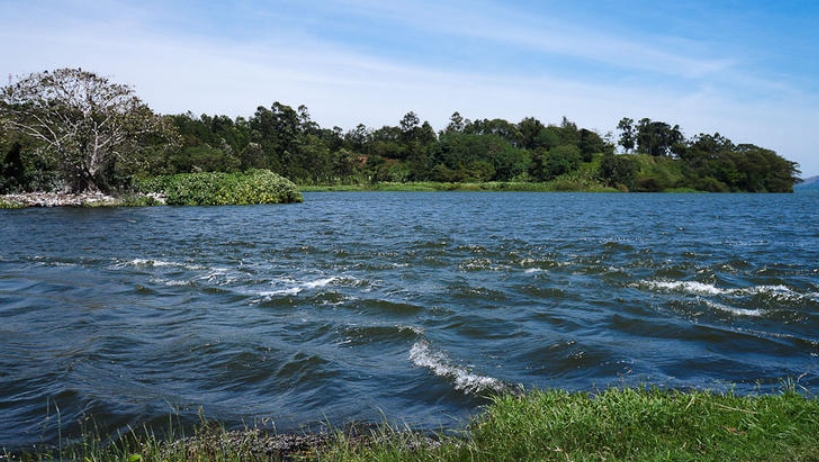
2 Nov
Factories dump their waste into Africa’s longest river
As tourists pose for a selfie on the shores of Lake Victoria in Uganda, factories within walking distance of the source of the Nile dump their waste directly into Africa’s longest river.
AFP reporters watched as tannery workers shoved rubbish into the river as dirty water flowed into the Nile through plastic pipes, leaving a brown sheen, a stark illustration of the growing scourge.
The city of Jinja, where the Nile begins its 6,500-kilometer journey into the Mediterranean, is a jumble of small houses sandwiched between textile and fish processing plants, shipbuilders, corn mills, brewers and coffee processors.
Rising industrial pollution in the area sparked alarm last year when a report from the Nile Basin Initiative (NBI) said that “rich natural resources and outstanding biodiversity in the Nile Basin face unprecedented threats.”
“We’ve seen fish stocks disappear… It’s largely because of the chemicals the factories are dumping into the river,” said one local fisherman.
“Sometimes the fish die in the water,” he added.
“The government sent an army to stop fishing in the deep Nile… but they let the factories pour tons of chemicals into the water and the fish would die,” he continued.
As drinking water is also polluted, anger at authorities and factory owners is growing around Jinji, a city of about 300,000 people where many households have more than 10 members.
“We started itching. The government has stated that it is not good for children and home use. They installed wells, and now we draw water from wells, not from the river,” he added.
Based in the Ugandan city of Entebbe, the Intergovernmental Nile Basin Partnership brings together 10 Nile Basin countries to discuss how best to manage their shared water resources.
Climate change could pose a serious threat to the Nile’s levels, but pollution is increasingly becoming a “bigger problem” in Uganda, said Calliste Tindimugaya of the country’s water and environment ministry.
Tindimugaya said the government has come up with a very direct way to show businesses the environmental impact of their actions. They want the factories to dump their treated wastewater into the same section of the Nile from which they extract their own supplies.
Thus, “they are the first to suffer if they pollute the environment,” he said.
Copyright © 2021 PDSConsulting Contact us: info@pdsconsulting.co.uk.